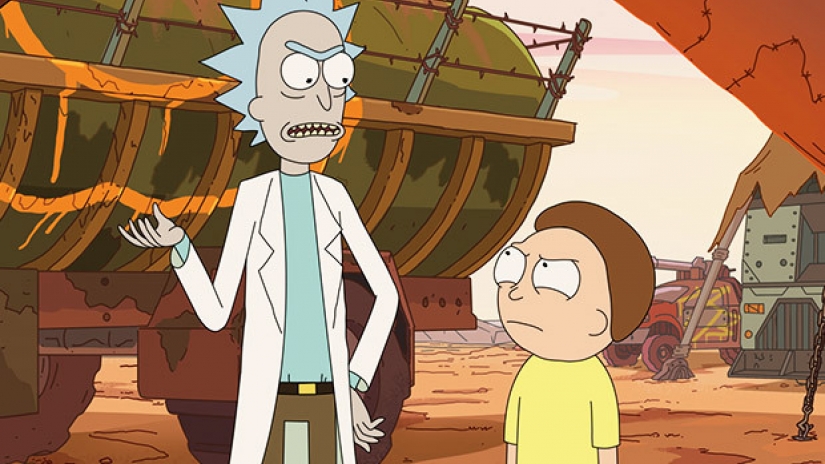Everyone’s obsession with ‘Rick and Morty’ has sucked the fun out of a good thing

The universe’s most infamous, portal-hopping, nihilistic, sci-fi parody duo “Rick and Morty” just concluded its third season, and fans are forced to suffer the existential dread of their own lives as the wait for new episodes begins again. No need to worry though. Every news and entertainment outlet imaginable will be pumping out content derived from the back end of the cash cow that is “Rick and Morty” from now until the moment the fourth season begins.
Although I’m writing this article right now, I wonder what’s the point? What could I possibly say that hasn’t already been said about this series? Even taking the stance against “Rick and Morty” fans has been covered ad nauseam already. It seems to be indicative of a cultural phenomenon that occurs when a certain program, person or trend goes completely viral. Every single drop of content is drained out of the shriveled husk of what it used to be until there’s nothing left but a raisin of something everyone used to love.
The fan base has ensured that the creators are under as much pressure as possible to create something absurdly funny, compelling and in service of what makes the show likable in the first place. I’ll admit that I’m guilty of contributing to the problem as well. Going back and reading my review of the second season after its conclusion paints a picture of how the immediate infatuation with the series essentially put the creators at an inconceivably high standard they felt they needed to live up to. It wasn’t that my article in particular influenced them, but the collective tide of unrealistic praise accumulating over time that applied the pressure.
I’m not even saying I didn’t like the third season. I enjoyed the hell out of every episode. It just felt vaguely self-conscious and I think that is the result of the over-praising from critics and fans. The critical flaw in the “Rick and Morty” fan base is their extreme sense of entitlement. It’s something that I can identify with, but can’t advocate. I understand that a show can resonate so powerfully with people that they feel a real emotional connection with it. It becomes a part of them. The problem is when you take that love and use it as a badge of entitlement to claim you deserve something, when in reality the creators owe you nothing.
In the end, overzealous fans of this show have managed to ruin it for some people and annoy others, including myself. And as much as I hate the fans who complain at every turn that their needs aren’t being met, the people who criticize them are just as annoying if not worse for perpetuating the cycle of content cannibalism.
So where does that leave me? I could defend myself by saying that my critique on the whole situation is enough to separate me from it. But, when I really take stock of the situation, the reality emerges that I am participating in the same meta content-cannibalism practices that I am trying to highlight.
The hope is, I suppose, that maybe if we can recognize the identifying qualities of the cycle, we can accept personal responsibility as fans, stop acting entitled, stop perpetuating antagonistic behavior and enjoy shows for what they are, instead of letting ourselves ruin a good thing.





















